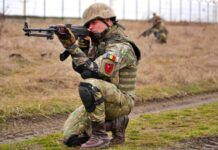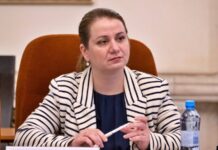The special vaccination situations in which the vaccination against SARS-CoV-2 can be done are presented below by the Romanian authorities and we are talking about a series of provisions regarding the distance between doses and not only that.
"Vaccination against COVID-19 in special situations ‼️
The National Committee for the Coordination of Activities regarding vaccination against COVID-19 (CNCAV) has issued a new instruction regarding vaccination in special situations.
According to the provisions found in this document, if a person develops an infection with SARS-CoV-2, after the administration of the first dose of the vaccine against COVID-19, he will be able to be vaccinated after healing, by continuing the vaccination scheme, without resuming the first vaccine doses.
According to the summary of product characteristics (SPC), the maximum administration interval between dose 1 and dose 2 is as follows:
for the Pfizer BioNTech vaccine – up to 42 days;
for the Moderna vaccine – up to 42 days;
for the Vaxzevria vaccine (AstraZeneca) – up to 12 weeks.
Important! In the event of exceeding the previously mentioned intervals, the beneficiary will be able to present himself directly to the vaccination center, without prior appointment, for the administration of the second dose.
Advancement of the second dose is allowed only in special, medically justified situations, respectively:
for the Pfizer BioNTech vaccine – the minimum interval between the two doses is 19 days;
for the Moderna vaccine – the minimum interval between the two doses is 25 days;
for the Vaxzevria vaccine (AstraZeneca) – the minimum interval between the two doses is 28 days.
When a person has an anaphylactic reaction after receiving the first dose, the vaccination schedule will be continued, at least 4-8 weeks later, with a vaccine manufactured according to a different technology.
The complete vaccination scheme against COVID-19 is carried out with the same type of vaccine, but in special situations, occurring after the first dose, it is recommended to administer another type of vaccine against COVID-19 manufactured according to a different technology."

















